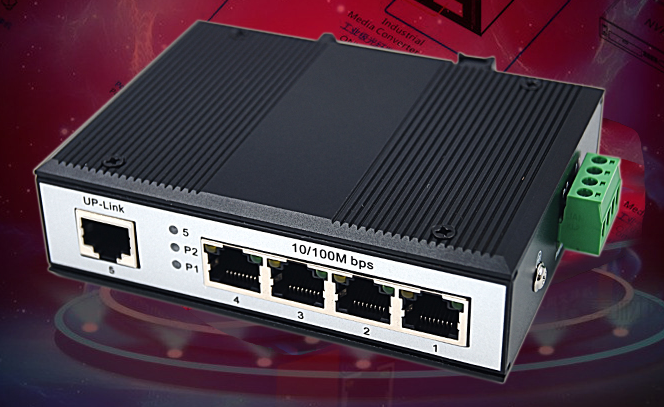What is an industrial switch
A switch can be understood as an intelligent, high-performance hub. Industrial switches are devices that implement wiring functions in industrial scenarios and can adapt to harsh environments. As data is sent back and forth through the switch, it records the MAC address (a unique identification number for network-enabled hardware) of each sender and receiver. During this process, the switch keeps track of which device is connected to which port.
When a switch receives data on a port, it uses its address record to identify where the traffic is coming from and which device it should be forwarded to. This ensures that information is effectively delivered to the computer in question, rather than to every device on the network. For large networks where bandwidth is at a premium, this is a necessary efficiency that can enhance the security of the local network.

What is a router? What is the difference between a router and a switch?
While switches and hubs carry data within a single network, routers are used to route data between different networks. These devices are located at the gateway where the two networks connect. For example, an industrial router can connect a shopping mall’s LAN to an ISP’s (Internet Service Provider) network. Routers are smarter than switches and hubs. A typical industrial router provides at least the following services:
Several Ethernet ports
NAT, or Network Address Translator, takes the individual IP addresses of all devices on the internal network and translates them into a single public-facing IP address. This single IP address is then used to connect to the larger Internet. When the reply packet arrives, NAT translates the public-facing IP address to the device’s specific internal IP.
DHCP (Dynamic Host Configuration Protocol) assigns a unique IP address to devices on the internal network. This unique address allows your device to connect to the Internet. IP addresses are assigned only for a limited period, after which they are renewed or reallocated.
DNS translates all domain names into IP addresses so your router knows where to direct outgoing traffic.
The difference between industrial routers and switches is the firewall layer of network security. While industrial routers (and often industrial routers with firewall capabilities) blindly pass traffic between two separate networks, the firewall monitors the traffic and helps block unauthorized traffic from the outside trying to enter your network .
Palabras clave: 4G router industrial